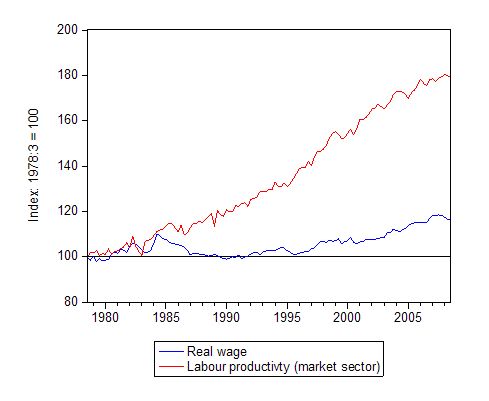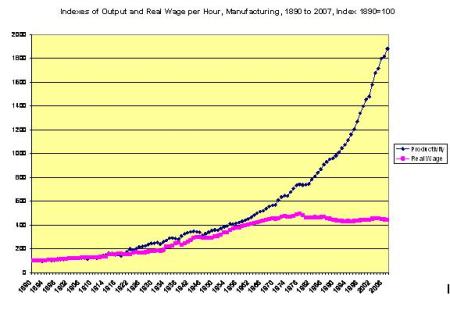- 07 Sep 2011 02:07
#13792982
What's come over you, Eran? You don't seem quite yourself today.
You don't seem quite yourself today.
If you genuinely believe that a person rightfully owns - or should own - "all the wealth that they personally produce," then you are definitely barking up the wrong ideological tree.
This whole idea is completely antithetical to capitalism, and capitalism would cease to exist if ever it was actually put into practice. I mean, just think about it for a second: if wage workers were paid exactly the value of what they produced, there'd be no profit for the capitalist - hence, no capitalism.
So I'm thinking that perhaps you'd like to rephrase this just a bit, for the sake of clarity? For instance:
In any honest argument involving capitalism and ethics, this would make a lot more sense. It would also help to explain why "welfare states" come into being under capitalism in the first place, and why wealth must be artificially "redistributed" to prevent famines and revolutions and so forth.
In other words, "theft" in the form of taxes will eventually be made necessary by the perpetual "theft" inherent in the relationship of the class of capitalists (who own more than they personally produce) and the the far, far larger class of wage workers (who own less).
See what I mean? It's a pretty basic point, I admit, but nobody's mentioned it so far, so I thought I ought to toss it in there.
Eran wrote:From an ethical point of view, people, being self-owners, also own all the wealth that they personally produce (or that others gift them).
What's come over you, Eran?
 You don't seem quite yourself today.
You don't seem quite yourself today.If you genuinely believe that a person rightfully owns - or should own - "all the wealth that they personally produce," then you are definitely barking up the wrong ideological tree.
This whole idea is completely antithetical to capitalism, and capitalism would cease to exist if ever it was actually put into practice. I mean, just think about it for a second: if wage workers were paid exactly the value of what they produced, there'd be no profit for the capitalist - hence, no capitalism.
So I'm thinking that perhaps you'd like to rephrase this just a bit, for the sake of clarity? For instance:
From a capitalist point of view, people who work for wages are self-owners, but own only an externally determined portion of the wealth that they personally produce.
In any honest argument involving capitalism and ethics, this would make a lot more sense. It would also help to explain why "welfare states" come into being under capitalism in the first place, and why wealth must be artificially "redistributed" to prevent famines and revolutions and so forth.
In other words, "theft" in the form of taxes will eventually be made necessary by the perpetual "theft" inherent in the relationship of the class of capitalists (who own more than they personally produce) and the the far, far larger class of wage workers (who own less).
See what I mean? It's a pretty basic point, I admit, but nobody's mentioned it so far, so I thought I ought to toss it in there.













 - chart showing how rapidly capital has been funneled upwards since the advent of Reagan's "the-government-is-the-problem" worldview, thus rendering the "War on Poverty" null and void.
- chart showing how rapidly capital has been funneled upwards since the advent of Reagan's "the-government-is-the-problem" worldview, thus rendering the "War on Poverty" null and void.













 - By Tainari88
- By Tainari88